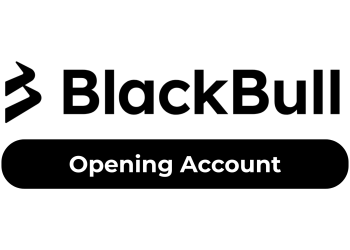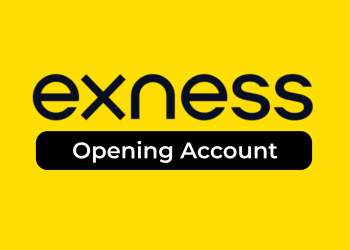In the world of trading, understanding the differences between ECN and Market Maker models is important if you want to trade in the forex market.
Both models have their own set of advantages and disadvantages, and choosing the right one can significantly impact your forex trading experience.
This article dives into the differernces of ECN and Market Maker trading, aiming to help you choose the most suitable broker for you.
Key Takeaways
- ECN trading provides direct access to the market, offering transparency and potentially lower spreads.
- Market Makers act as counterparties to trades, providing liquidity and convenience but may have conflicts of interest.
- Factors to consider when choosing between ECN and Market Maker include trading style, market conditions, and desired level of control.
- ECN trading is suitable for active traders seeking fast execution and competitive pricing.
- Market Makers are suitable for beginners or traders looking for simplicity and ease of use.
Understanding ECN Trading Brokers

How ECN Works
An Electronic Communication Network (ECN) is an automated system that matches buy and sell orders for securities in the financial markets.
It facilitates direct trading between market participants at variable prices. ECN allows traders to access the global currency markets directly, bypassing traditional middlemen.
Traders and institutions submit orders, which are then matched by the ECN in real-time. If there is no immediate match, the orders are displayed on the system until a counterpart is found. This process is highly efficient and transparent, as it provides participants with a view of the market’s depth.
The ECN model democratizes trading by providing a platform where all participants, regardless of size, can compete on a level playing field.
The following list outlines the basic steps involved in ECN trading:
- A trader places an order to buy or sell a specific quantity of a financial instrument.
- The ECN system searches for a matching order from another market participant.
- If a match is found, the trade is executed and reported to the relevant parties.
- If no immediate match is available, the order remains active in the system until it is either matched or canceled.
Advantages of ECN Trading
The ECN trading model boasts several compelling advantages that cater to the needs of various traders. Direct access to other market participants is a significant benefit, as it allows for more transparent and efficient price matching without the need for a middleman.
- Anonymity: Traders can operate without revealing their identity, which is particularly beneficial for those looking to execute large orders without impacting the market.
- Lower spreads: Due to the competitive nature of the network, spreads tend to be tighter, which can lead to cost savings over time.
- After-hours trading: ECN platforms often provide the flexibility to trade outside of standard market hours, extending opportunities for traders across different time zones.
The absence of a dealing desk in ECN trading eliminates potential conflicts of interest and ensures that traders face the true market conditions. This level of transparency is highly valued among seasoned investors who seek a fair trading environment.
Disadvantages of ECN Trading
While ECN trading offers transparency and direct market access, it also comes with its own set of disadvantages.
One significant disadvantage is the complexity of the ECN system, which can be daunting for new traders. The interface is often less user-friendly than traditional broker platforms, requiring a steeper learning curve.
Another issue is the variable spreads. Unlike market makers that offer fixed spreads, ECNs provide variable spreads that can widen significantly during high volatility or off-market hours, potentially increasing trading costs.
ECN platforms may also impose higher minimum trade sizes and require larger capital to start with, which can be a barrier for retail traders.
Lastly, ECN trading can be less favorable for scalpers due to the commission-based structure, which adds to the cost of frequent trading. Here’s a quick rundown of the disadvantages:
- Complexity and user-unfriendliness
- Variable spreads that can widen
- Higher minimum trade sizes
- Commission costs affecting scalpers
Exploring Market Maker Model

Market Maker Functionality
Market makers play a crucial role in financial markets by providing liquidity and facilitating trade execution. They quote both a buy and a sell price in a financial instrument, holding an inventory of stocks or other securities to meet the demand of traders.
This dual quoting system ensures that there is always a price available for investors looking to buy or sell, even when there is a temporary lack of market participants.
Market makers generate profits through the spread, which is the difference between the buy (bid) price and the sell (ask) price. They may also earn from fees for providing these services. The following list outlines the key functions of a market maker:
- Ensuring continuous trading by always being ready to buy or sell
- Setting fair and competitive bid and ask prices
- Providing liquidity to the market, which helps reduce price volatility
- Facilitating smoother price discovery by balancing supply and demand
Market makers are essential in creating an efficient market environment by bridging the gap between buyers and sellers. Their presence can significantly enhance the trading experience by providing better price stability and market depth.
Pros and Cons of Market Makers
Market makers play a pivotal role in providing liquidity to financial markets, ensuring that trades can be executed even in the absence of a direct buyer or seller match. Their presence is crucial for maintaining smooth market operations, particularly in less liquid markets.
Pros of Market Makers:
- Guaranteed liquidity: Market makers commit to buying and selling assets, providing continuous trade opportunities.
- Narrower spreads: By competing for order flow, market makers can offer tighter bid-ask spreads.
- Improved market stability: Their activity can reduce volatility by balancing the order flow.
Cons of Market Makers:
- Potential for price manipulation: Market makers might influence prices to their advantage, especially in thinly traded markets.
- Conflict of interest: As they trade on their own account, their interests may not always align with those of traders.
- Costs: While spreads can be narrower, other costs such as fees might be higher compared to ECN trading.
While market makers provide many benefits, traders must be aware of the potential drawbacks and consider how these factors might impact their trading strategy.
Market Maker Strategies
Market makers employ a variety of strategies to ensure liquidity and maintain a balanced order book. One common approach is spread capture, where the market maker profits from the difference between the bid and ask prices.
- Inventory management is crucial, as market makers must balance their holdings to mitigate risk.
- High-frequency trading (HFT) techniques are often used to execute orders rapidly and take advantage of small price movements.
- Statistical arbitrage involves identifying and exploiting temporary price inefficiencies.
Market makers play a pivotal role in facilitating trading by always being ready to buy or sell at publicly quoted prices, thus providing continuous liquidity to the market.
While these strategies can be profitable, they also require sophisticated technology and a deep understanding of market dynamics. Market makers must constantly adapt to changing market conditions to remain competitive and effective.
Choosing Between ECN and Market Maker
Factors to Consider
When deciding between an ECN and a Market Maker, several key factors must be taken into account to determine which trading structure aligns with your investment goals and trading style. Your trading volume and frequency play a crucial role, as ECNs are often more cost-effective for high-volume traders, while Market Makers may be more suitable for those with lower volumes.
- Costs and Fees: Consider the impact of commissions, spreads, and potential fees on your trading strategy.
- Market Access: ECNs provide direct market access, which might be essential for your trading needs.
- Trading Hours: Some ECNs offer extended trading hours, which could be a deciding factor.
- Execution Speed and Slippage: Assess the importance of fast execution and the likelihood of price slippage in your trades.
- Anonymity: ECNs can offer greater anonymity, which might be preferable for certain trading strategies.
It’s essential to weigh these factors against your personal trading preferences and the level of control you desire over your trades. Ultimately, the choice between an ECN and a Market Maker should support your overall trading objectives and risk tolerance.
Which Option is Suitable for You
Determining whether an ECN or Market Maker is suitable for your trading needs depends on several factors. Consider your trading style, volume, and the importance of anonymity in your trades.
ECN might be the right choice for traders who value tight spreads and direct market access, typically benefiting high-frequency and large-volume traders.
On the other hand, Market Makers can be more suitable for retail traders with lower volumes and those who prefer the ease of trading and fixed spreads. Here’s a quick rundown to help you decide:
- ECN: Best for high-volume, experienced traders who can handle price variability and commission-based pricing.
- Market Maker: Ideal for beginners and those trading smaller volumes who appreciate simplicity and fixed spreads.
While both ECN and Market Maker have their unique advantages and challenges, the ultimate decision should align with your trading objectives and risk tolerance. Reflect on your trading habits and goals to make an informed choice.
Making the Decision
When it comes time to make the decision between an ECN and a Market Maker, it’s essential to align your choice with your trading objectives and preferences. Consider your trading style, volume, and the importance of anonymity in your trades.
- For active, high-volume traders who value trade execution speed and after-hours trading, an ECN may be the preferred choice.
- If you’re looking for a simpler interface and more consistent pricing, especially if you’re a retail investor, a Market Maker might suit your needs better.
Remember, there’s no one-size-fits-all answer. Your decision should be based on a careful assessment of how each model aligns with your individual trading strategy and goals.
Top Forex Brokers for Beginners
[ninja_tables id=”6695″]
Conclusion
In conclusion, understanding the differences between ECN and Market Maker is crucial for making informed decisions in the financial markets. Both ECN and Market Maker have their own advantages and disadvantages, and the choice between the two depends on individual trading preferences and strategies.
While ECN offers direct access to the market and transparency, Market Maker provides liquidity and potentially tighter spreads. It is important for traders to evaluate their trading goals, risk tolerance, and market conditions before choosing between ECN and Market Maker. Ultimately, the decision of whether ECN or Market Maker is right for you will depend on your specific trading needs and objectives.








